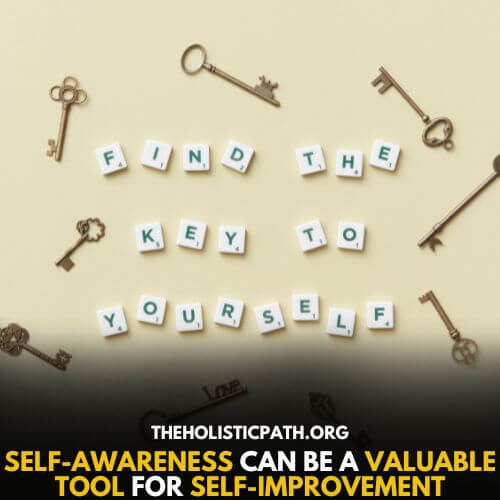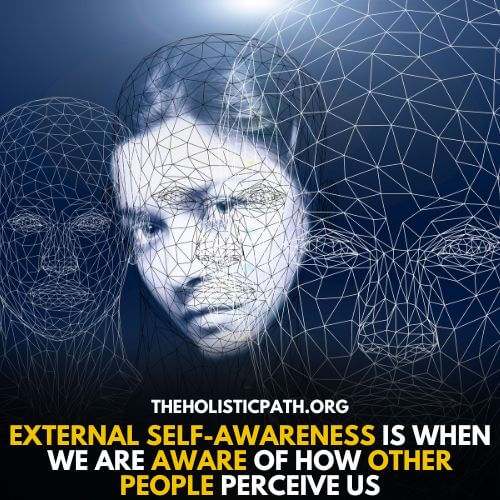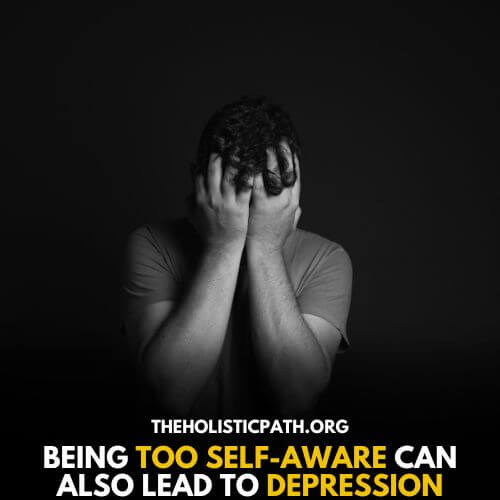What Is Self-Awareness And Why Is It Important
Self-awareness. We all have it to some extent, but can self-awareness be bad?
What happens when we have too much self-awareness?
Many of us strive for self-awareness because we believe it will help us lead better lives. And in many ways, it does. Self-awareness can help us to understand our strengths and weaknesses, and to make better choices about how we spend our time.
However, there can be such a thing as too much self-awareness. When we become too focused on ourselves, we can start to see everything in our lives through the lens of our own experiences and preferences.
This can lead us to make decisions that are not in our best interests, or that are based on unrealistic expectations. We may also find it harder to empathize with others or to see the world from their perspective.
How Can Self-Awareness Be Bad? Two Types Of Self-Awareness
There are two types of self-awareness:
- Internal self-awareness
- External self-awareness
Both of these types play a huge role in our day-to-day lives. Let’s see how both of these influence our lives to better understand how can self-awareness be bad.
1. Internal Self-Awareness:
Internal self-awareness is the conscious knowledge of our own thoughts, feelings, and motivations. It allows us to reflect on our own thoughts and emotions, and to understand why we act the way we do.
On the one hand, self-awareness can be a valuable tool for self-improvement. By understanding our own emotions and motivations, we can learn to control them and make better choices in life.

Some benefits of internal self-awareness include:
- Improved decision making.
- Better self-control.
- Greater emotional intelligence.
- Better relationships.
- Increased self-esteem.
On the other hand, too much self-awareness can be harmful. If we dwell too much on our own thoughts and emotions, it can lead to anxiety and depression. It can also make us more self-critical, and less likely to take risks.
Ultimately, self-awareness is a double-edged sword: it can be beneficial, but it can also be harmful if we are not careful.
2. External Self-Awareness:
External self-awareness is when we are aware of how other people perceive us. This can be helpful in many situations, such as when we’re giving a presentation or meeting new people. It’s important to strike the right balance, though.

Too much self-awareness can lead to overthinking and paralysis by analysis. We may start second-guessing our every move and become so focused on what others think of us that we miss out on enjoying the moment.
When we’re too wrapped up in our own ego, we may also come across as arrogant or self-centered. However, external self-awareness can be a valuable tool when used judiciously.
By understanding how we’re perceived, we can adapt our words and actions to achieve the desired result.
For example, if we’re trying to close a business deal, external self-awareness can help us to project confidence and authority. In social situations, it can help us to appear more likable and approachable.
Ultimately, external self-awareness is all about understanding how we come across to others and using that knowledge to our advantage.
How to Recognize When You Are Too Self-Aware
If you find yourself constantly aware of your own thoughts and feelings, it may be a sign that you’re overly self-aware. Here are 25 signs that you may be too in touch with yourself:
- You are often aware of your own movements and facial expressions.
- You are constantly monitoring your thoughts and feelings.
- You are very critical of yourself.
- You are quick to judge your own performance.
- You find it difficult to enjoy yourself without feeling guilty.
- You are always questioning your decisions.
- You are hesitant to take risks for fear of making a mistake.
- You tend to downplay your accomplishments.
- You have a hard time accepting compliments from others.
- You feel like you’re never good enough.
- You worry about what other people think of you.
- You are very conscientious of your appearance and behavior.
- You have a hard time relaxing and taking it easy.
- You ruminate on past events a lot, often revisiting them in your mind over and over again.
- You tend to be very introspective.
- Your thoughts often consume you and you find it hard to focus on anything else.
- Your moods fluctuate a lot and can be quite extreme at times.
- You find it difficult to let go of negative thoughts and emotions.
- You have a strong need for control and like to be in charge of everything in your life.
- You are highly perfectionistic and prone to setting unrealistic expectations for yourself.
- You struggle with anxiety and stress a lot.
- You tend to be emotionally reactive and over-sensitive to things that happen around you.
- You have trouble accepting that you are human and make mistakes sometimes.
- Your feelings often get the better of you and you have trouble thinking logically when something bothers you emotionally
- You find it difficult to live in the present moment.
The Consequences Of Being Too Self-Aware
When you are too self-aware, you can become overwhelmed with thoughts and emotions. This can lead to a number of negative consequences, including:
- Anxiety – When you are constantly focused on yourself, it is easy to become anxious. This is because you are constantly worried about how you are coming across to others and what they think of you.
- Depression – Being too self-aware can also lead to depression. This is because you may feel like you are never good enough and that you are always disappointing yourself.
- Isolation – Feeling overwhelmed by your thoughts and emotions can cause you to isolate yourself from others. This is because you may feel like you are too much of a burden or that no one would want to be around you.

If you are experiencing any of these consequences, it is important to seek help. There are many treatments available that can help you overcome being too self-aware.
How To Overcome Being Too Self-Aware
If you are struggling with too much self-awareness, there are steps you can take to overcome it. The most important thing is to be accepting and compassionate towards yourself. Here are some other tips:
- Practice self-compassion. When you’re overly hard on yourself, it can be difficult to break out of the cycle of negative thoughts. Practice being kind and forgiving to yourself, even when you mess up.
- Set realistic goals. Don’t strive for perfection – aim to do your best, but recognize that you won’t always be successful.
- Spend time with supportive people. Surround yourself with positive people who will make you feel good about yourself.
- Accept compliments gracefully. When someone compliments you, accept the compliment graciously and don’t brush it off.
- Take time for yourself. Make sure you schedule some time each day to relax and do something you enjoy.
- Challenge your negative thoughts. When you catch yourself thinking negatively, challenge those thoughts and try to find evidence that disproves them.
- Refocus your attention elsewhere. If you find yourself getting wrapped up in negative thoughts, try to focus your attention elsewhere by doing something active or fun.
- Practice mindfulness meditation. Mindfulness meditation can help you become more aware of your thoughts and feelings, and it can also help you learn how to let go of negative thoughts and emotions.
- Write down your thoughts and feelings. Sometimes simply writing down your thoughts and feelings can help you process them better and release them from your mind.
- Seek professional help if needed. If you find that you’re struggling to overcome your excessive self-awareness, it might be helpful to seek professional help from a therapist or counselor
- Find a hobby or passion outside of yourself. When you focus too much on yourself, it can be hard to find joy in anything else. Find a hobby or passion outside of yourself that brings you happiness and fulfillment.
- Let go of perfectionism. Striving for perfection can often lead to excessive self-awareness and self-criticism. Let go of perfectionism and accept that mistakes are a part of life.
Can Self-Awareness Be Bad-Final Thoughts
In conclusion, can self-awareness be bad? It can if it leads to overthinking and anxiety. But it can also be helpful in motivating us to change and improve ourselves. So it really depends on how we use it.
If we’re able to stay aware of our thoughts and feelings without getting overwhelmed, then self-awareness can be a valuable tool. But if we get lost in our thoughts and can’t step back from them, then it can be detrimental. Ultimately, it’s up to each of us to decide how much self-awareness is too much.
